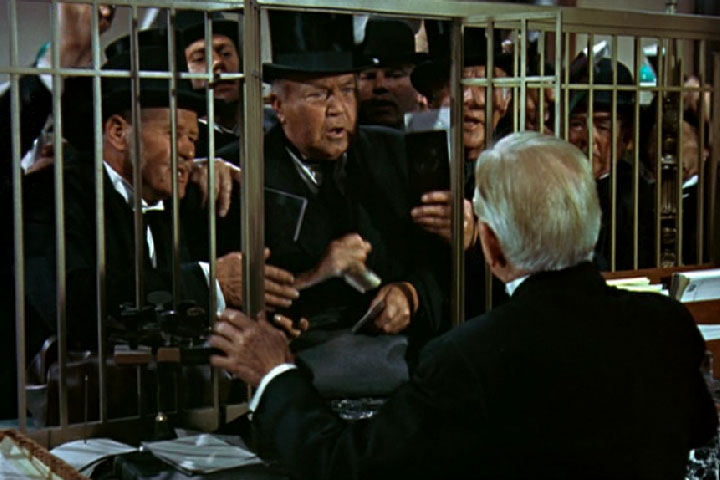Berliner Stadtschloss
Berlin, German Empire
It couldn't be said that any of the members of the German cabinet were happy, exactly, to be convened at the Palace in the dead of night. But when the Kaiser came calling, one answered, and so the most prominent men in the Empire sat staring at each other at three in the morning. No-one really spoke to one another besides muttered greetings, they had all been woken from deepest sleep and were by and large too tired even for those little pleasantries and polite fictions which greased the wheels of German society. None of them were young men either and von der Schulenburg had just begun to nod off when the Kaiser entered the room. Up they sprang like childrens' toys, respectfully saluting His Majesty before he wearily waved a hand for them to take their seats again. If they themselves were tired then he was certainly moreso. Usually possessed of the pallor of the overworked on the best of days, tonight he looked as if he were standing at the brink of the grave.
"I have a son."
The cabinet ministers looked at each other with concern. Of course the Kaiser had a son. He had six of them. Was this the beginning of...
"No, I mean a new one!" he snapped, as if reading their thoughts.
"Your Majesty?" asked von Papen.
The Kaiser sighed and rubbed his eyes. "My seventh son, Prince Boniface Wilhelm Augustus Friedrich Martin, was born about an hour ago. Her Majesty is quite well, as is the child."
They all stared at him. Kaiser Wilhelm was on the other side of 75 and Empress Hermine was to be 50 before the year was out. On neither account was conception of a child impossible, but... they stared. Her Majesty had been out of the public eye for months now with what palace officials had referred to as a "persistent but ultimately harmless" cold, and clearly had come down with something else instead. von Papen was the first to speak, somewhat tentatively.
"We congratulate you, of course, but without being unseemly Your Majesty it does behoove us to wonder..."
Kaiser Wilhelm started for a second, having quite possibly fallen asleep in the intervening moments, and only then managed to stagger to the point of this conventicle.
"It is tradition that when a new state is inaugurated, a Royal be at its head. The Greek king hails from the Danes, distant cousins of mine ruled Romania, an Austrian rules the Ukraine, and Germans hold Mitteleuropa. Yet while I obviously hold no grudge against the Grand Duke of the Baltic Duchy or the King of Lithuania for not being of my own blood; I must confess some measure of irritation. The Hohenzollerns rule over what is now the greatest empire in the world. Berlin, truly, is the New Rome. Yet at every turn my dynasty, my blood, is outdone by inferiors. A Hapsburg or Bourbon commands more respect, for theirs are the dynasties which rule the world direct. This cannot be allowed to continue. I now have seven sons, five of whom are not blessed with a crown or assurance thereof..."
He paused there and looked at them.
"...and this will change. The Hohenzollern name will be revered, men will bend their knees to such sovereigns, not just in Germany but elsewhere as well. In the annals of history they will not only find our Imperial crown, but the legacies and exploits of all my sons and theirs after them. What task I am commending to you, gentlemen, is this: before I die, my sons are to be kings. Get working."
And with that the Kaiser got up and left without waiting for a response. The cabinet wasn't sure to make of what they had just heard. Either the Kaiser had gone mad, or was playing some elaborate prank. Either way their hands were tied to do otherwise. In the German Empire, if the Kaiser gave an order, it was to be obeyed.







